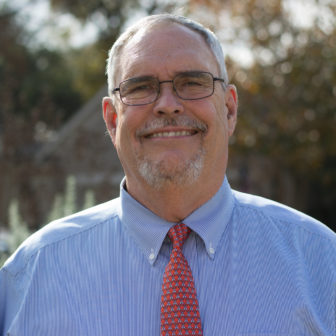
 U.S. sex-offender registration laws for both adults and juveniles have largely been knee-jerk reactions to horrific incidents of child abductions that ended in sexual abuse and murder or near-deaths. Captured by images of innocent children and moved by national news stories of sexual offenses committed by strangers, the public responded with grassroots efforts demanding that “something be done” to prevent the victimization of more children.
U.S. sex-offender registration laws for both adults and juveniles have largely been knee-jerk reactions to horrific incidents of child abductions that ended in sexual abuse and murder or near-deaths. Captured by images of innocent children and moved by national news stories of sexual offenses committed by strangers, the public responded with grassroots efforts demanding that “something be done” to prevent the victimization of more children.
State laws were passed, which evolved into federal laws, such as the Adam Walsh Act in 2006 that required all states to implement some form of sex-offender registration. Surely people and especially children would be protected if there was public access to the names of known sexual offenders, their addresses and other details about them.
Laws have been in place for many years requiring juveniles who commit certain sexual offenses to publicly register as sexual offenders, and the time is ripe to examine them. Critical to this examination is a reminder of why these laws were passed and a look at their faulty foundation. We must be honest with ourselves and acknowledge what we knew when the laws were passed and what we know now, including any and all evidence about their effectiveness or ineffectiveness.
Lawmakers and the public are at a critical juncture: Do we continue down a rabbit hole and ignore empirical evidence or acknowledge that we now have more information to make better decisions? Let’s look at the following facts:
- Juvenile sex-offender registration laws were passed hastily in reaction to a few horrific sexual offenses that were not representative of most sexual offenses committed by juveniles.
- Juvenile sexual offenders do not usually become adult sexual offenders; in fact, the rate of sexual recidivism among juvenile sexual offenders is very low.
- Empirical research has not generated systematic evidence that these laws prevent victimization of children.
- Juvenile sex-offender registration requirements do more harm than good.
Sex-offender registration laws for juveniles can be traced, at least in part, to the sexual assault of Amie Zyla. Amie’s offender, who was a teenager at the time, was arrested and convicted of sexually assaulting her when she was 8. Subsequently, the offender was arrested for another sexual offense when he was 23. Amie and her father fought for tougher laws for juveniles who committed sexual offenses. Amie spoke publicly, including testimony before the U.S. House subcommittee on Crime, Terrorism, and Homeland Security. This led to the “Amie Zyla Expansion of the Sex Offense Definition,” essentially expanding sex-offender registration requirements to include juvenile offenders.
Amie, in her public testimony to lawmakers, said juveniles who commit a sexual offense become adult sexual offenders and pleaded with lawmakers not to “sit back and allow kids to be continued to be hurt.” Since then, many researchers have examined sexual recidivism rates of juvenile sexual offenders and the likelihood they will become adult sexual offenders. They have found no evidence that all, or even most, juvenile sexual offenders become adult sexual offenders.
Researchers have found that juveniles who commit sexual offenses have less sexual recidivism than adult sexual offenders. An assessment of seven studies found that only 7 to 13 percent of juveniles who commit sexual offenses sexually recidivate within approximately five years. Additionally, very few who commit a sexual offense as a juvenile go on to commit a sexual offense as an adult. People commonly overestimate the likelihood of sexual recidivism by sexual offenders. Even a U.S. Supreme Court justice made such an error by stating they are more likely than other types of offenders to repeat their crimes, which is contrary to research findings.
The testimony provided by Amie Zyla is heart-wrenching and leaves no one on the side of protecting sexual offenders. Policy, however, should be based on empirical research. Typically, policy and public knowledge of sexual offenses and sexual offenders are not based on empirical research, but rather on national news stories of a few, unique sexual offenses against children.
At the time juvenile sex-offender registration laws were passed, lawmakers acted on the best information they had, which often came from testimony of survivors of sexual assault and family members of victims. Much of the information involved sexual offenses committed by strangers, and many of those ended in a murder.
It is important to emphasize that few sexual offenses occur between strangers, and few lead to murder. Since these laws have been passed, not only do we know more about juveniles who commit sexual offenses; we also know more about the effects of sex-offender registration laws on juveniles. One researcher, Elizabeth Letourneau, and her team of researchers at Johns Hopkins University have demonstrated in several studies that juvenile sex-offender registration laws do not reduce sexual recidivism, do not deter first-time arrests for sexual offenses committed by juveniles, do not improve community safety and can do more harm than good. For example, they can experience alienation from family members and others in the community, which could increase their likelihood of recidivism.
The public registration requirements for juveniles who commit sexual offenses are inconsistent with the underlying philosophy of the U.S. juvenile justice system, which now emphasizes rehabilitation over punishment and acknowledges that juveniles are malleable and have not fully developed cognitively. The Juvenile Law Center acknowledges that juveniles who commit crimes are often less blameworthy than adults and more amenable to treatment. Historically and to a large extent even today, juvenile offenders have justifiably been treated differently than adult offenders. Current sex-offender registration laws, however, deny protections given to juveniles who commit other crimes by lumping juveniles with adults with regard to sex-offender registration requirements. Most people, including lawmakers, have been moved by a few select and highly publicized sexual offenses, demanding severe punishment of juveniles.
Some states are potentially sending a signal to other states by scaling back their sex-offender registration requirements. This includes abolishing lifetime registration for those who committed a sexual offense as a juvenile. As noted by the Huffington Post, 12 states do not publicly register juveniles who have committed sexual offenses unless they have been waived to adult court. Although several high-profile cases of sexual abuse tug at one’s heartstrings, we should adopt laws that are guided by empirical evidence. Only then will laws and policies honor the victims and survivors of sexual offenses committed by juveniles.
Mark Stafford, Ph.D., is a professor in the School of Criminal Justice at Texas State University, having previously been a faculty member at Washington State University and the University of Texas, Austin.
Donna Vandiver, Ph.D., is a professor in the School of Criminal Justice and an assistant dean at the College of Applied Arts at Texas State University. She has published numerous research studies focusing on sex offenders. She and Mark Stafford recently co-authored a textbook, “Sex Crimes and Sex Offenders: Research and Realities.”
Pingback: End juvenile sex-offender registration: It’s ineffective and based on rare cases – NARSOL
Registries are idiotic social policy. Any person who adequately protects their family has no need at all for them. Any person who does not will not be helped by them. And all the while Registries don’t help people, they are counterproductive and also gravely harm America (including getting innocent children murdered).
And of course we don’t Register hundreds of other crimes that are clearly as damaging where a Registry would clearly be as effective.
The emperor has no clothes.
the same can apply to adult sex offenders that did not commit violent sex offences such as violent rapes or killing there victims. most sex offenders are non violent and deserve a chance at a normal life again after receiving counselling for their underlying mental problem.